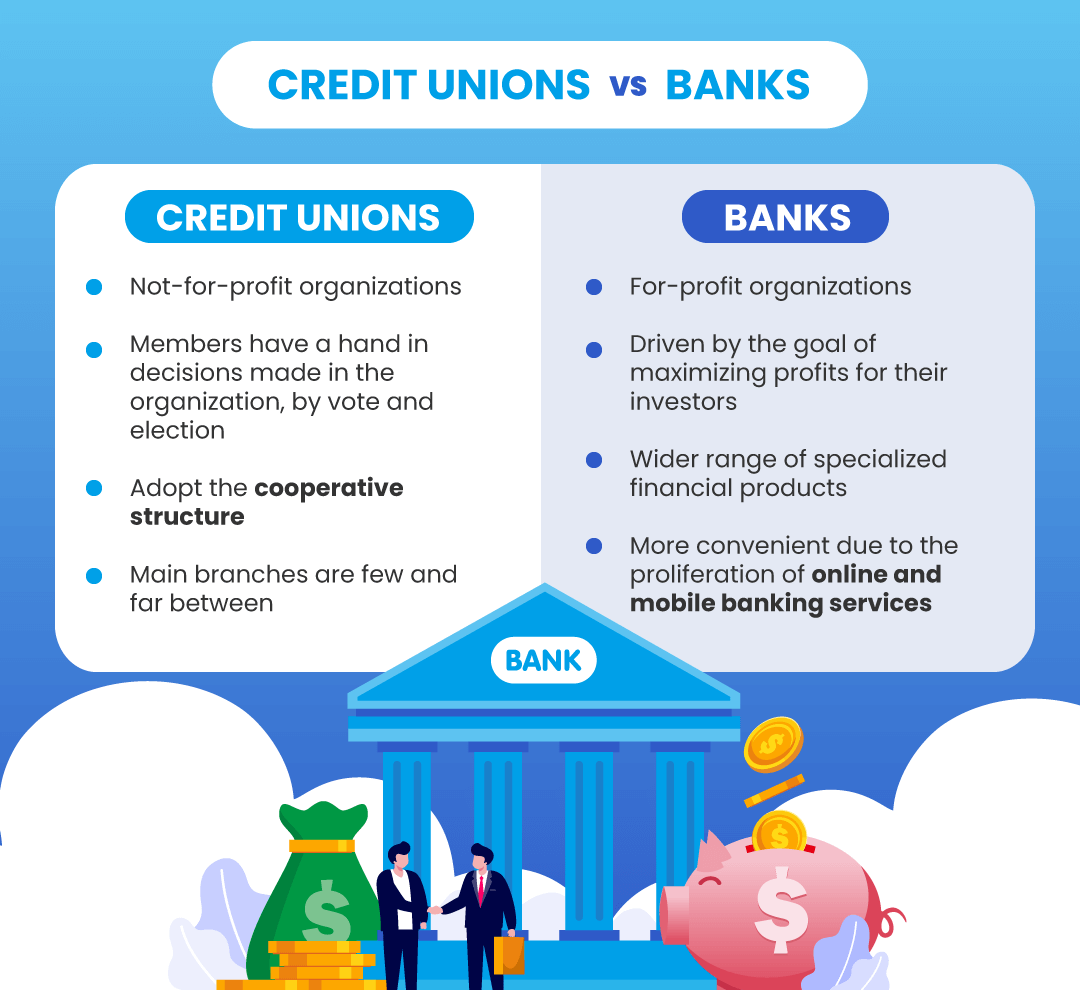Opening the Benefits of Lending Institution: Your Overview
In the realm of banks, credit history unions stand as a often underexplored and distinctive option for those seeking a more individualized technique to banking. As we look into the details of credit unions, a world of benefits and opportunities unravels, providing a look right into a financial landscape where neighborhood worths and member-focused solutions take facility stage. From their simple starts to their contemporary effect, comprehending the essence of lending institution can potentially improve the means you view and handle your finances.

History of Lending Institution
The principle of credit score unions emerged as an action to the monetary demands of individuals that were underserved by conventional financial institutions. Friedrich Wilhelm Raiffeisen, a German mayor, is often credited with starting the initial contemporary credit rating union in the mid-1800s.
The concept of people integrating to merge their sources and supply financial help per various other spread rapidly across Europe and later to The United States and Canada. In 1909, the initial lending institution in the USA was established in New Hampshire, noting the beginning of a new period in community-focused financial. Ever since, cooperative credit union have continued to focus on the monetary health of their participants over revenue, personifying the participating principles of self-help, self-responsibility, democracy, equity, equality, and uniformity.
Subscription Qualification Requirements
Having developed a structure rooted in cooperative concepts and community-focused financial, lending institution keep specific membership qualification requirements to make sure placement with their core values and goals. These standards typically focus on a typical bond shared by prospective participants, which might consist of factors such as geographic location, employer, business affiliation, or membership in a particular community or association. By requiring members to fulfill particular eligibility needs, credit unions intend to foster a sense of belonging and shared function among their members, strengthening the participating nature of these economic organizations.
Along with typical bonds, some cooperative credit union might also expand membership eligibility to member of the family of existing participants or people who live in the same household. This inclusivity assists credit unions increase their reach while still staying real to their community-oriented principles. By keeping clear and clear membership criteria, credit unions can make sure that their members are proactively engaged in supporting the participating worths and goals of the establishment.
Financial Products and Solutions
When thinking about the range of offerings available, cooperative credit union provide a diverse variety of economic products and solutions customized to meet the distinct needs of their participants. These offerings usually include financial savings and inspecting accounts, fundings (such as automobile car loans, personal loans, and home loans), charge card, and different financial investment alternatives. One essential advantage of cooperative credit union is their concentrate on providing affordable rates of interest and lower costs compared to standard banks. Participants frequently profit from personalized client solution, as lending institution focus on developing strong partnerships with those they offer.
In addition, credit rating unions regularly offer monetary education and learning and counseling to assist members boost their financial blog here literacy and make informed decisions. Several cooperative credit union additionally join common branching networks, allowing members to access their accounts at a variety of places nationwide. On the whole, the series of financial items and services used by cooperative credit union emphasizes their commitment to fulfilling the varied requirements of their participants while prioritizing their economic wellness.

Benefits Over Standard Financial Institutions
Showing a distinctive strategy to financial solutions, credit unions supply numerous benefits over conventional banks. One key advantage is that credit unions are usually member-owned, meaning that revenues are reinvested right into the company to offer far better rates and reduced costs for members. This cooperative framework usually leads to more individualized customer support, as credit score unions prioritize participant satisfaction over maximizing revenues. Additionally, credit unions are recognized for their competitive rates of interest on savings accounts, car loans, and charge card. This can result in higher returns for participants that obtain or save cash with the debt union contrasted to conventional financial institutions.
Additionally, cooperative credit union often tend to have a strong concentrate on economic education and learning and community assistance. They usually offer workshops and resources to help members improve their financial proficiency and make sound helpful site cash monitoring choices (Credit Union Cheyenne WY). By promoting a sense of community and shared goals, cooperative credit union can create an extra encouraging and comprehensive financial setting for their members
Neighborhood Involvement and Social Influence

Furthermore, lending institution usually companion with regional companies and charities to sustain different social reasons such as budget-friendly housing, education and learning, and healthcare. By collaborating with these entities, lending institution can enhance their social effect and address essential concerns impacting their communities. This collaborative approach not only advantages those in demand yet additionally enhances the social material of the neighborhood by promoting a feeling of unity and support among its participants. Fundamentally, lending institution act as drivers for positive change, driving neighborhood advancement and social progress through their energetic involvement and impactful efforts.
Final Thought
Finally, lending institution have a rich background rooted in neighborhood and collaboration, providing a diverse variety of monetary product or services with affordable rates and individualized customer support. They focus on the monetary health of their participants over earnings, fostering a feeling of belonging and offering monetary education. By actively engaging in social effect efforts, lending institution develop a supportive and comprehensive financial setting that makes a favorable distinction in both private lives and neighborhoods.
Friedrich Wilhelm Raiffeisen, a German mayor, is typically attributed with establishing the very first contemporary credit report union in the mid-1800s - Wyoming Credit Unions. By needing members to satisfy particular qualification demands, credit her explanation history unions intend to foster a feeling of belonging and shared objective amongst their members, reinforcing the cooperative nature of these economic institutions
Additionally, credit report unions often use economic education and learning and therapy to aid participants improve their financial proficiency and make educated choices. In general, the range of financial products and services supplied by debt unions underscores their commitment to fulfilling the diverse needs of their members while prioritizing their financial wellness.
In addition, debt unions are recognized for their competitive passion prices on savings accounts, lendings, and credit history cards.